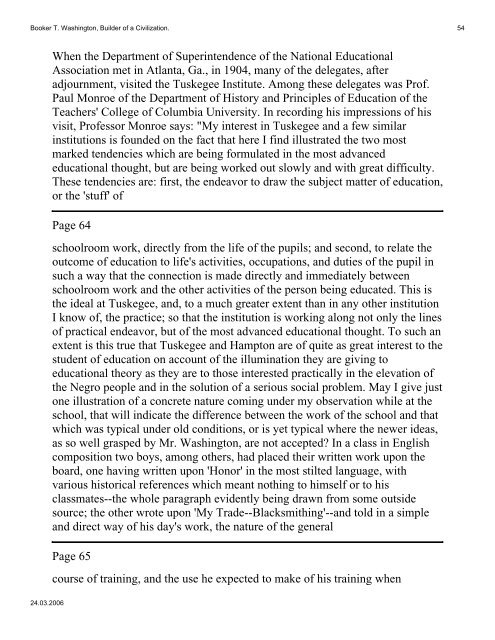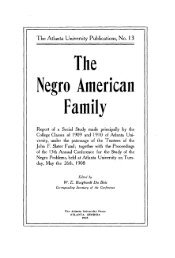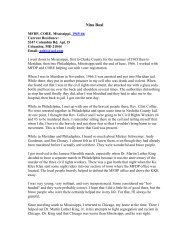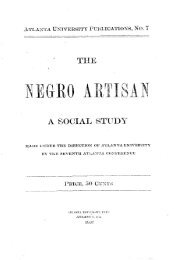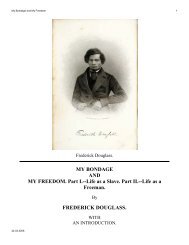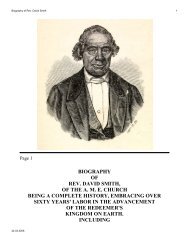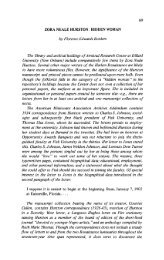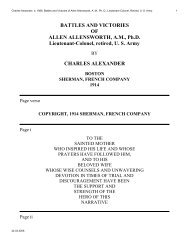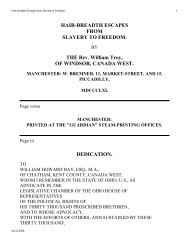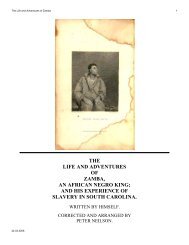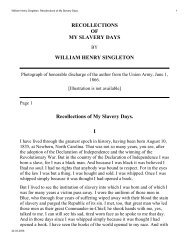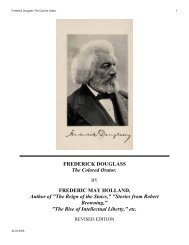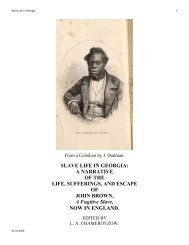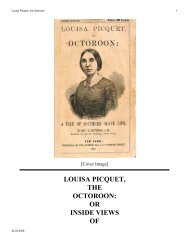Booker T. Washington, Builder o - African American History
Booker T. Washington, Builder o - African American History
Booker T. Washington, Builder o - African American History
You also want an ePaper? Increase the reach of your titles
YUMPU automatically turns print PDFs into web optimized ePapers that Google loves.
<strong>Booker</strong> T. <strong>Washington</strong>, <strong>Builder</strong> of a Civilization. 54<br />
When the Department of Superintendence of the National Educational<br />
Association met in Atlanta, Ga., in 1904, many of the delegates, after<br />
adjournment, visited the Tuskegee Institute. Among these delegates was Prof.<br />
Paul Monroe of the Department of <strong>History</strong> and Principles of Education of the<br />
Teachers' College of Columbia University. In recording his impressions of his<br />
visit, Professor Monroe says: "My interest in Tuskegee and a few similar<br />
institutions is founded on the fact that here I find illustrated the two most<br />
marked tendencies which are being formulated in the most advanced<br />
educational thought, but are being worked out slowly and with great difficulty.<br />
These tendencies are: first, the endeavor to draw the subject matter of education,<br />
or the 'stuff' of<br />
Page 64<br />
schoolroom work, directly from the life of the pupils; and second, to relate the<br />
outcome of education to life's activities, occupations, and duties of the pupil in<br />
such a way that the connection is made directly and immediately between<br />
schoolroom work and the other activities of the person being educated. This is<br />
the ideal at Tuskegee, and, to a much greater extent than in any other institution<br />
I know of, the practice; so that the institution is working along not only the lines<br />
of practical endeavor, but of the most advanced educational thought. To such an<br />
extent is this true that Tuskegee and Hampton are of quite as great interest to the<br />
student of education on account of the illumination they are giving to<br />
educational theory as they are to those interested practically in the elevation of<br />
the Negro people and in the solution of a serious social problem. May I give just<br />
one illustration of a concrete nature coming under my observation while at the<br />
school, that will indicate the difference between the work of the school and that<br />
which was typical under old conditions, or is yet typical where the newer ideas,<br />
as so well grasped by Mr. <strong>Washington</strong>, are not accepted? In a class in English<br />
composition two boys, among others, had placed their written work upon the<br />
board, one having written upon 'Honor' in the most stilted language, with<br />
various historical references which meant nothing to himself or to his<br />
classmates--the whole paragraph evidently being drawn from some outside<br />
source; the other wrote upon 'My Trade--Blacksmithing'--and told in a simple<br />
and direct way of his day's work, the nature of the general<br />
Page 65<br />
course of training, and the use he expected to make of his training when<br />
24.03.2006


